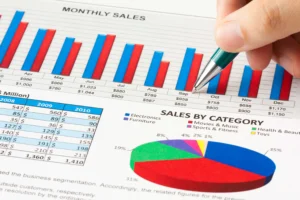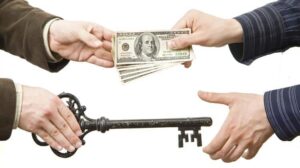How Much Is a Business Worth With $1 Million in Sales? A Comprehensive Guide

How Much Is a Business Worth With $1 Million in Sales? Entering a bit into the financial world, we might wonder about the substantial value in this regard.
And surely, even if we don’t have a company that reaches 100 thousand dollars, it makes us think… How Much Is a Business Worth With $1 Million in Sales?
It doesn’t necessarily have to be sales; it could also be revenues considering the gradual increase in income.
To understand the value of a company, various elements need to be considered. Whether it’s to acquire more capital or to prepare the company for sale, these numbers need to be at hand. Besides, you never know if someone might knock on your office door to make an offer.
When a company reaches a certain income threshold, valuation becomes much more important.
The valuation of a company with more than a million in income is absolutely crucial because it’s a turning point for many potential buyers and investors: How Much Is a Business Worth With $1 Million in Sales?
On the other hand, overestimating or underestimating the value of your company can be detrimental, so knowing it requires a lot of attention.
READ HERE: Creating Your Dream Luxury Home Office.
It’s important to note that most business owners use several different options to value their companies.
So far, one of the most effective calculation methods is the standard valuation formula of three times your gross income.
But in this article, you can learn a bit more about some methods and tips to understand: How Much Is a Business Worth With $1 Million in Sales?

The importance of reaching the million-dollar sales milestone
For many, knowing the value of their company might not be very important, but for others, it is a fundamental aspect.
If you have an accountant who manages your accounts, they have probably already told you that knowing the value of the company comes with a world of advantages.
In the new, globalized, and bank-centered economy, which relies more on credit, it is more focused on those who earn the most.
In fact, a more profitable company is no longer the one with the most scale (more land, more buildings, more machinery, more image), but the companies that generate more cash flow for their owners.
If you want to learn more about financial topics, you can read: What’s the minimum wage in Mexico?
Therefore, the value of a company is not measured by its apparent size or the value of its assets but by its cash flow, and more specifically by its “free cash flow.”
That is, how much a company produces over a given period of time. Business valuation is vital for future transactions.
In this sense, an income of 1 million dollars represents a significant inflection point that attracts potential buyers and investors.
When an entrepreneur has years of experience managing a particular type of business, they develop an impressive ability to measure the “value” of a company.
Using various criteria, the owner or group of partners can quickly and simply establish the price of a business they want to buy, particularly if it’s in the same line of business they’ve been involved with for years.
The value of a company, assuming it continues over time, should be calculated based on its ability to generate cash, which we refer to as “free cash flow.”
The most appropriate method to value a company is to discount the expected future cash flows.
Likewise, the “enterprise value” is a type of metric used to determine how much the entity is worth in the market.
Technically, it is the difference between the market capitalization and the net financial debt that may have been incurred.
But How Much Is a Business Worth With $1 Million in Sales?
Business valuation in the eyes of potential buyers and investors
To answer the question, “How Much Is a Business Worth With $1 Million in Sales?” it is necessary to understand some key elements.
Some advisors estimate that a common formula is to triple the gross income.
Technology companies may value their capital based on the founders, patents, and users. Therefore, the million-dollar revenue mark has multifaceted implications.
It can increase the number of buyers, affect friction costs, and even be influenced by acquisition rules. Additionally, industry standards, profitability levels, growth prospects, and prevailing market conditions play a role.
The global market and current trends at the time of business valuation are elements that cannot be ignored. Reaching the million-dollar mark is a significant achievement, and for good reason.
It can mean that the number of potential buyers for your company increases, as does the interest in investing in your business.
More buyers also mean a better earnings multiple, which could translate into real bargaining power. Another factor that influences the value of the company is who will buy the asset.
Larger and more mature companies seek a minimum growth of 20% if they are going to make an acquisition. Private equity firms are the ones driving this last reason.
Therefore, the value of your company increases considerably if private equity firms become interested, but they typically don’t even begin to show interest until your company reaches the million-dollar mark.

Methods to determine the value of a company: How Much Is a Business Worth With $1 Million in Sales?
There are several techniques, methods, and valuations to understand the price of a company with 1 million in sales. Among the most popular are:
Using the book value:
This valuation method focuses on studying the company’s balance sheet.
Its main characteristic is that it is considered one of the simplest to calculate; the reason is that it only takes into account one criterion: the entity’s net worth.
In this method, the company’s assets will be considered, and the liabilities will be subtracted.
The assets could include contributions made by partners, movable and immovable property, and retained earnings. As you can see, it is a very traditional method, without any speculation.
Method based on liquidation value:
Another way to learn how to calculate the value of a company is by referencing the liquidation value. This criterion is nothing more than an estimate of the entity’s value at a given time if the assets were sold at market price.
Thus, the main particularity is that the cost of the assets is not taken into account, but rather their value in a hypothetical sale.
Calculation of dividend value:
Another method that may also be interesting is to study dividends if we are still unsure how to calculate the value of a company. One resource that also works is to study the expected dividends per share.
You just need to apply a formula that relates the associated dividend and divide it by the return required by each shareholder. The formula would be as follows: Stock Value = Dividends / Minimum Required Return.
In general, the value can be determined using various methods, such as a multiple of earnings or revenues.
For many small businesses, a common formula uses three times the gross income, which would make the valuation approximately 3 million dollars. However, the methods may vary depending on the industry.
What affects the valuation of a company with 1 million in sales?
For the valuation of a company with 1 million in sales, other elements are added to the analysis, including:
- Profitability: Higher profits can increase the valuation.
- Industry: Valuation multiples differ by industry.
- Growth potential: High growth prospects can raise the valuation.
- Market conditions: Economic trends and market conditions can affect the valuation.
- Assets and liabilities: Balance sheet values play a role.
- Market demand: Interest from potential buyers affects the valuation.
Fair market value of a company:
As you’ve noticed, it’s not possible to set a fixed price for a company with a million in sales revenue.
This is because it all depends on the timing, season, and sector. Some products are short-lived, and the seller may need to defend whether the return on investment is sustainable in the coming months.
How Much Is a Business Worth With $1 Million in Sales?
This includes historical financial data of the company and assumptions about how the company will perform in the future.
Cash flows need to be discounted to the present, using a discount rate that accounts for the risk of the company’s future cash flows.
The present value of these cash flows is then used to estimate the company’s fair market value.







